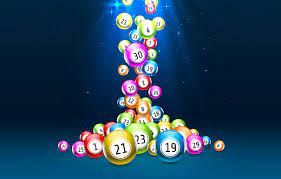
In the vast landscape of gambling, lotteries have emerged as popular games of chance, captivating players with the promise of life-altering wins. Two prominent lottery variants, Lotto and TOTO, share similarities but also feature distinct characteristics that set them apart. In this article, we delve into the nuances of these two lottery formats, exploring the differences that define the gameplay, odds, and overall experiences they offer to participants.
1. Game Format:
Lotto is a generic term for a variety of lottery games, and its format can differ across countries and regions. However, the common thread is that players select a set of numbers from a predetermined range, usually choosing a specific quantity of numbers out of a larger pool. The winning combination is then determined through a randomized drawing of numbers.
TOTO:
TOTO, on the other hand, typically involves predicting the outcome of sports events rather than selecting numbers. Participants are presented with a list of upcoming matches, and they must predict the results (win, lose, or draw) of a predefined number of these matches. Correct predictions earn participants prizes based on the accuracy of their forecasts.
2. Selection of Numbers:
Lotto:
In traditional lotto games, players typically choose a set of numbers from a pool of possible options. The range of numbers and the quantity to be selected vary, but common formats include choosing six numbers out of 49 or seven numbers out of 50. Some lotteries may also involve additional bonus or supplementary numbers, adding an extra layer of complexity to the game.
TOTO:
TOTO, being a sports-based prediction game, doesn’t involve the selection of numbers. Instead, participants analyze upcoming sports events and predict outcomes. The selection process in TOTO revolves around forecasting results for a specified number of matches, considering factors such as team performance, player statistics, and other relevant information.
3. Gameplay Frequency:
Lotto:
Lotto drawings typically occur at scheduled intervals, and the frequency varies depending on the specific lottery. Common formats include weekly, bi-weekly, or even daily drawings. Players purchase tickets for a specific drawing, and the results are announced shortly after the draw takes place.
TOTO:
The frequency of TOTO games is often tied to the schedule of the sports events being predicted. For example, TOTO games may be associated with the outcome of weekly football matches or other regular sporting events. The timing of TOTO draws aligns with the conclusion of the selected sports fixtures.
4. Odds of Winning:
Lotto:
The odds of winning in lotto are influenced by factors such as the total number of possible combinations and the specific rules of the game. The more numbers a player is required to select, and the larger the pool of possible numbers, the lower the odds of hitting the jackpot. Lotto jackpots are often challenging to win, contributing to the allure of massive prizes.
TOTO:
The odds of winning in TOTO are determined by the accuracy of predictions made for multiple sports events. As participants must forecast outcomes for a set number of matches, the odds can vary based on the difficulty of predicting these results. While TOTO may have complex odds, the skill element involved in analyzing sports events adds a strategic dimension to the game.
5. Prize Structure:
Lotto:
Lotto prizes are typically structured with different tiers, rewarding players for matching varying numbers of the drawn combination. The jackpot is awarded for correctly predicting the entire winning combination. Lower-tier prizes are distributed for matching fewer numbers, providing participants with opportunities to win even if they don’t hit the jackpot.
TOTO:
TOTO prizes are often distributed based on the accuracy of predictions for a specified number of sports events. Exact predictions for all selected matches yield the highest prize, while partial accuracy may result in lower-tier prizes. The prize structure in TOTO reflects the challenges and complexities of predicting sports outcomes.
Conclusion:
While both Lotto and TOTO fall under the umbrella of lottery games, their differences lie in the fundamental elements of gameplay, selection processes, and the factors influencing the odds of winning. Lotto, with its number-selection format and periodic drawings, relies on chance and luck. In contrast, TOTO introduces a strategic component, requiring participants to analyze and predict the outcomes of sports events. Whether one is drawn to the allure of randomly drawn numbers or the excitement of predicting sports results, both Lotto and TOTO offer unique experiences within the dynamic world of lotteries.